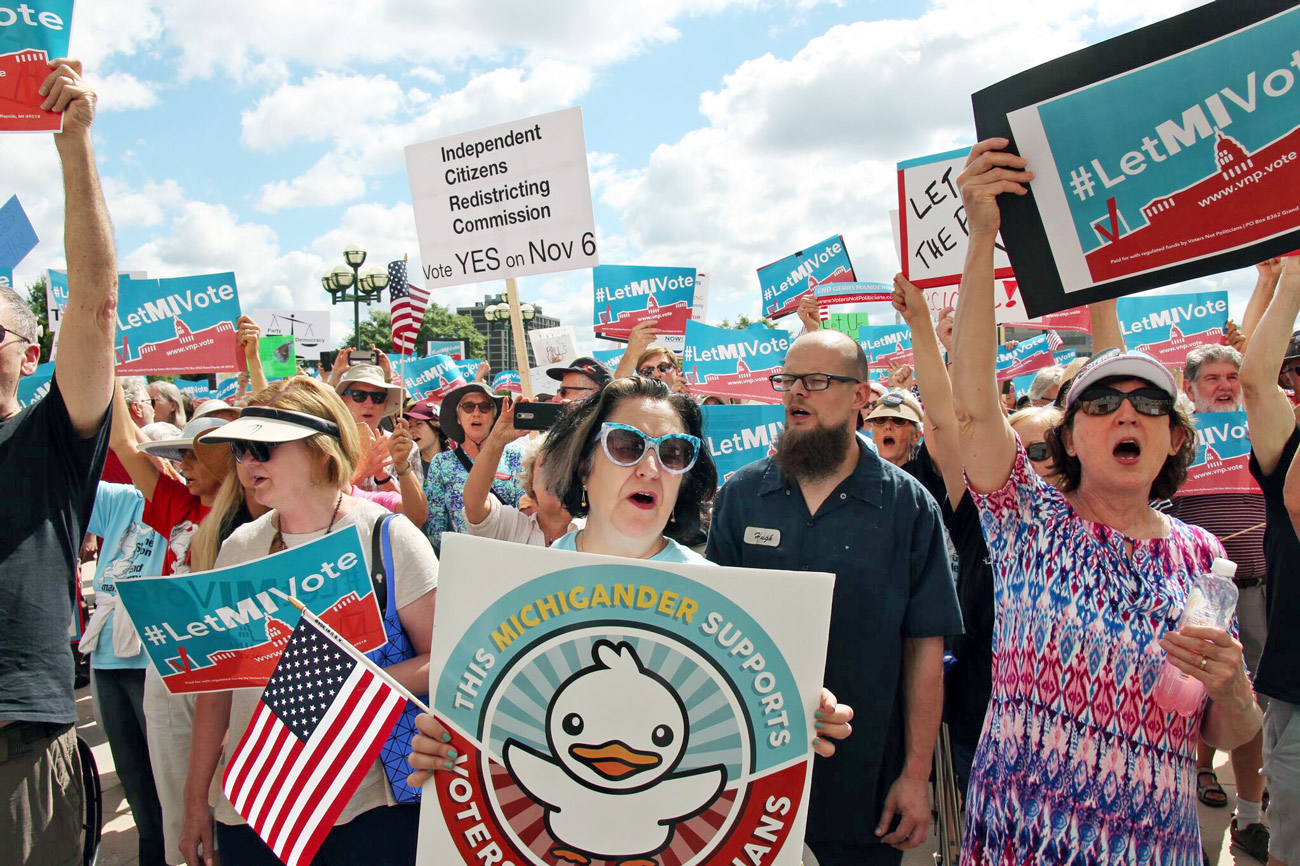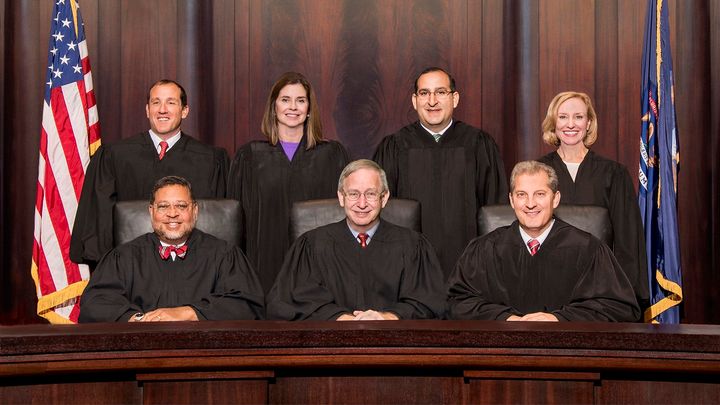The seven members on Michigan’s highest court that will decide the fate of a proposal to create an independent redistricting commission have received hundreds of thousands of dollars in campaign contributions from people and organizations tied to groups opposing the measure.
The Michigan Chamber of Commerce is the primary funder of the campaign opposing the redistricting proposal, Citizens Protecting Michigan’s Constitution. According to a Sludge analysis of campaign contributions, the Michigan Chamber of Commerce and affiliated groups and individuals have given roughly $336,000 to sitting members of the Michigan Supreme Court. That figure includes contributions from the Chamber and former employees, along with businesses that are members of the Chamber, employees who work for an company that is a member, and companies and people that have donated to Citizens Protecting Michigan’s Constitution.
Campaign finance reports for Justices Clement and Wilder were not available and efforts to reach their campaigns were unsuccessful.
The Chamber itself has given more than $124,000 in direct and in-kind contributions to sitting members of the Michigan Supreme Courts, according to Sludge’s analysis of the Chamber’s various PAC disclosures. The contributions include two $15,000 donations made in February to Justices Elizabeth Clement and Kurtis Wilder, both of whom are up for re-election this fall. The amount was first reported by The Detroit News.
In April, Citizens Protecting Michigan’s Constitution filed a lawsuit in an attempt to keep the 13-member independent redistricting commission off of November’s ballot, arguing that the 3,000 word proposal is too broad to be considered an amendment and should instead require a constitutional convention. In June, the Michigan Court of Appeals rejected the lawsuit, prompting an appeal to the state’s Supreme Court, which is slated to issue a ruling soon.
A spokeswoman for the Michigan Chamber of Commerce declined to provide a membership list to “protect member privacy,” but a review of their website listed at least eight businesses in their “member spotlight” that have either donated, or whose employees have donated, to justices over the course of two decades.
Additionally, three recent donors to Citizens Protecting Michigan’s Constitution— Realtors PAC of Michigan, John Kennedy, the CEO of automotive supplier Autocam, and LaBrant Strategies— have all donated to justices that will soon decide whether to allow voters to decide whether they want an independent redistricting commission. (Robert LaBrant, the owner of LaBrant Strategies and senior counsel at the Sterling Corporation— donated a combined $250 to two justices under his name 2012. His company, LaBrant Strategies made, a $721 in-kind donation to the campaign opposing the redistricting efforts.)
Bradley Hantler, the former political director for the Michigan Chamber of Commerce, donated a combined $950 in 2014 to various justices, disclosures show. Hantler now works for the Bockorny Group, a Washington-based lobbying firm, where he acts as the “liaison to the Trump Administration and Republican Governors across the country.” Hantler was previously involved in building support for Donald Trump “in the critical swing state of Michigan” during the 2016 presidential election, according to his company bio.
An independent redistricting commission could have serious implications for the the political landscape of the country and would require Michigan’s congressional and legislative districts to be redrawn. Trump won Michigan in 2016 by 10,700 votes, a state President Barack Obama won in 2012 by 9.5 percentage points.
The districts are “so extreme” in how they’re gerrymandered in Michigan that there’s a Republican super majority in the state Senate despite the fact that Republicans only received half of the votes cast in the last election, said Katie Fahey, the executive director of Voters Not Politicians, the campaign pushing for an independent redistricting commission.
The $336,000 in donations over the last 20 years to justices from people and groups affiliated with the Michigan Chamber of Commerce and Citizens Protecting Michigan’s Constitution “invites conflict of interest that affects Republicans and Democrats,” said Josh Silver, the founder and director of Represent.Us, a good government group that has contributed to Voters Not Politicians.
“Given the optics of these contributions, a decision denying Michiganders the right to vote in November would be the worst legal decision and the worst political decision of the justices’ careers,” Silver added.

Michigan is one of 10 states that elect Supreme Court justices. While the justices appear on a non-partisan portion of the ballot, they first need to be nominated at party conventions.
Since Supreme Court Justices first need to be nominated at the state GOP convention on August 25, Clement and Wilder do not need to file campaign disclosures for another few weeks. The Michigan Secretary of State’s Office has asked the high court to issue a ruling by early August on whether the redistricting commission can be presented to voters in November, meaning that the public will likely not be able to see who donated to Clement or Wilder’s campaigns ahead of a ruling being made.
The relationship between the justices that will decide the fate of the ballot measure and the Michigan Chamber of Commerce-backed campaign faces additional strain over conflicts of interest. Clement and Wilder have both been endorsed by the Michigan Chamber of Commerce. Further muddying the waters, Mary Doster—who is listed as the treasurer for Clement and Wilder, as well as several other justices— is married to one of the lead attorneys challenging the redistricting measure.
John Nevin, a spokesman for the Michigan Supreme Court, noted that neither party involved in the case has moved for disqualification.
“Michigan has safeguards in place to protect the integrity of judicial decision-making and to make sure that judges are insulated from fundraising,” Nevin said in an email.



